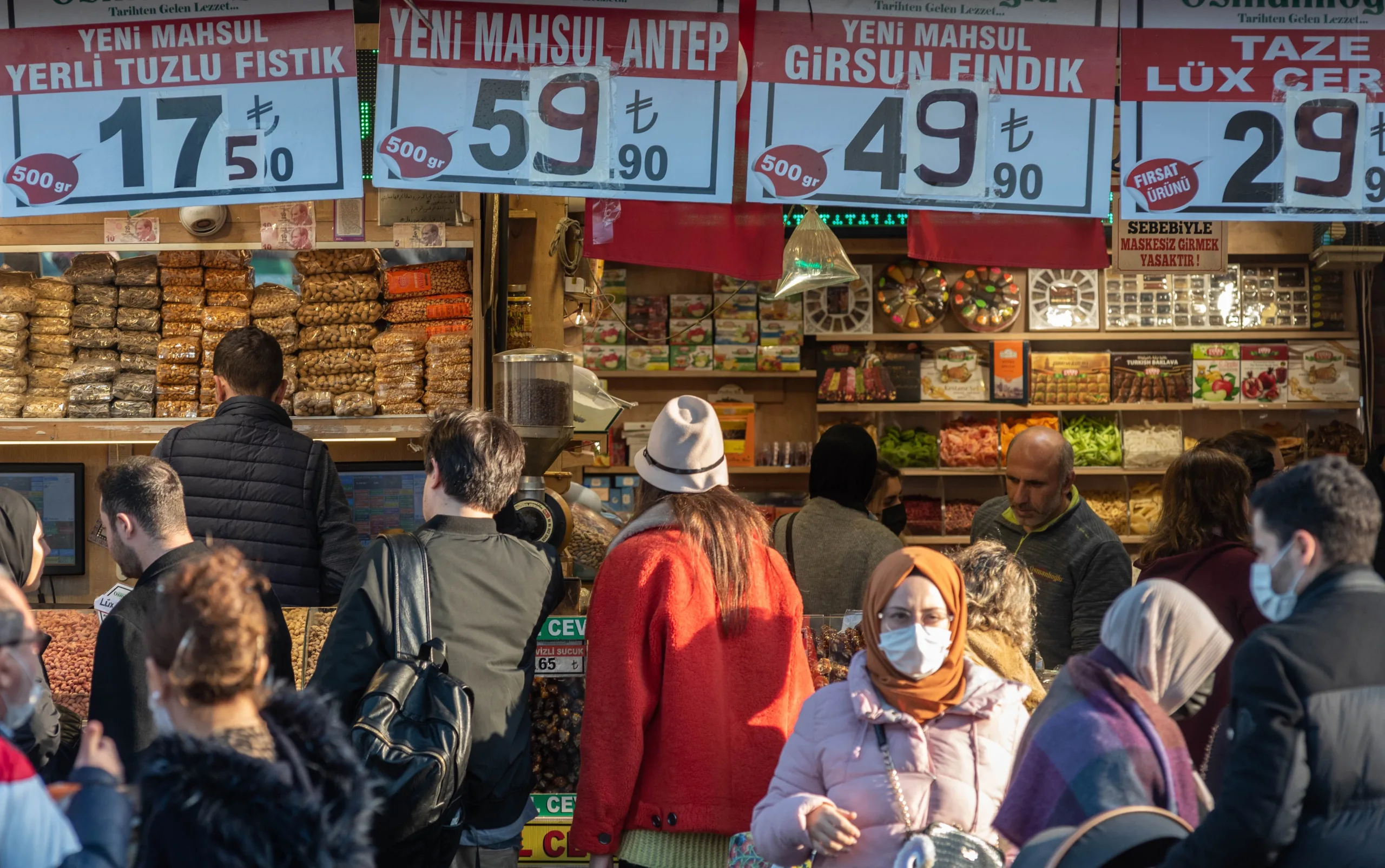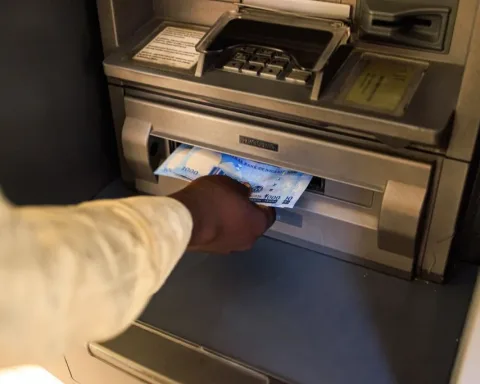Turkey’s inflation rate continued its upward trajectory in November, with food prices playing a key role. The Consumer Price Index (CPI) rose by 2.2% in the month, surpassing expectations, while the annual inflation rate dropped to 47.1%, showing a decline from October’s 48.6%. Despite this drop, food prices remained a significant contributor to the overall increase in inflation.
“Food prices are the main driver of inflation in Turkey right now,” said Selim Koc, an economist at ING. “We’ve seen a sharp rise in unprocessed food prices, and that’s impacting families across the country.”
Join our WhatsApp ChannelFood Prices Lead the Inflation Surge
Food prices have once again taken centre stage in Turkey’s inflation story. The food group contributed 1.23 percentage points to the November headline rate. While processed food prices showed a slowdown, unprocessed food inflation surged to 9% in November, compared to just 0.3% last year. This marked the highest November food inflation figure in the country’s current inflation series.
“Families are paying more at the grocery store, and it’s especially noticeable when buying fresh produce,” said Ayse Demir, a local resident in Mardin. “It’s tough, but we’re doing our best to manage.”
Despite the increase in food prices, there are signs of improvement in other areas. The pace of rent increases, which also contributed to the overall inflation rise, has slowed. According to the minutes from Turkey’s Monetary Policy Committee (MPC), rent inflation is expected to decelerate further in December.
Rising Food Prices: What’s Behind the Surge?
Experts point to a combination of factors driving food prices higher. The rise in unprocessed food costs has been particularly steep, which has exacerbated inflationary pressures in the Turkish economy. However, processed food prices, while still increasing, have grown at a slower pace compared to the previous year.
The significant food price hikes have been felt by consumers all over the country. The rise in prices is largely attributed to a combination of domestic agricultural challenges and global economic factors, including high oil prices and other geopolitical factors affecting global commodity markets.
“Global oil prices are having an impact on the cost of food production and distribution,” explained economist Murat Yildirim. “This is contributing to inflation both in Turkey and globally.”
READ ALSO: Nigerians Cry Over Exploitation Amid Inflation, Soaring Food Prices
Inflation Outlook and Policy Adjustments
Although food prices are pushing inflation higher, the overall trend in Turkey’s inflation rate remains on a decline. The annual inflation rate for November fell to 47.1%, down from 48.6% in October. This is a result of favourable base effects, as inflation in November 2023 was much lower at 3.3%. Despite the decline, inflation remains a key challenge for the Turkish economy.
The Central Bank of Turkey (CBT) has been working to combat inflation through tightening financial conditions and adjusting interest rates. There is speculation that the CBT may start cutting interest rates in December, following its revised inflation projections.
“We are hopeful that the central bank will take necessary actions to address inflation in the coming months,” said economist Selim Koc. “Rate cuts may offer some relief, but food prices will continue to be a significant challenge.”
The Role of Rent and Household Equipment Costs
Alongside the prices, other factors such as housing and household equipment also contributed to the inflation increase in November. Housing, particularly rent increases, added 0.4 percentage points to the inflation rate. However, the rate of rent inflation has slowed in recent months, and experts expect it to decelerate further as the year progresses.
Household equipment was the third-largest contributor, adding 0.21 percentage points to the inflation figure. Despite these other contributing factors, prices remain the primary driver of the inflationary trend in Turkey.
Core Inflation and Services Show Positive Trends
Core inflation, which excludes volatile items such as food and energy, showed some positive signs. In November, the core inflation rate decreased to 47.1% annually. Meanwhile, services, which are less affected by currency fluctuations, also continued their downward trend.
However, as Yildirim points out, services are still a major area of concern. “The minimum wage increases and domestic demand pressures are keeping services inflation high, which remains a key risk for Turkey’s inflation outlook.”
Future Expectations for Food Prices and Inflation
Looking ahead, experts remain cautious about the future of food prices. The recent global rise in oil prices, coupled with domestic supply issues, means that food prices may continue to rise. For now, Turkey’s inflation trajectory depends largely on how these prices evolve in the coming months.
While the Central Bank of Turkey’s tightening monetary policies may bring some relief, analysts suggest that the prices of food will continue to dominate the inflation landscape for the foreseeable future.
“Turkey’s inflation is still heavily dependent on food prices, and until we see improvements in agricultural production and global commodity price stabilization, it will be challenging to achieve sustained inflation control,” said Koc.
Emmanuel Ochayi is a journalist. He is a graduate of the University of Lagos, School of first choice and the nations pride. Emmanuel is keen on exploring writing angles in different areas, including Business, climate change, politics, Education, and others.


















